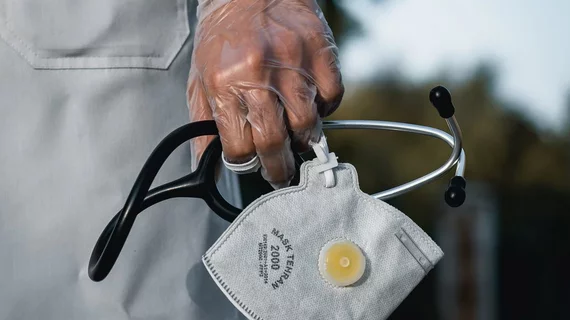Racial, gender disparities among heart transplant recipients with COVID-19
Heart transplant recipients who are black and/or male may be at an increased risk of contracting COVID-19, according to a new study published in the Journal of Cardiac Failure.
The researchers explored data from 13 orthotopic heart transplant (OHT) patients who were hospitalized for COVID-19 at one of two facilities. The mean patient age was 61 years old, and the mean time from OHT to presentation with symptoms was 9.6 years. All 13 patients, the team noted, were black men.
“No patients were hospitalized within 30 days before admission, had traveled outside the United States in the 90 days before admission, or had known contact with an individual who tested positive for COVID-19,” wrote lead author Scott W. Ketcham, MD, of Michigan Medicine in Ann Arbor, and colleagues.
Heart failure or left ventricular systolic dysfunction was present in 38% of patients, and cardiac allograft vasculopathy was present in 46%. Chest radiographs revealed bilateral pulmonary infiltrates in 92% of patients.
While 69% of the hospitalized men had already been discharged from the hospital at the time of the study, 15% remained in acute care and another 15% died. Among the discharged patients, the median length of stay was 6 days.
“Despite immunosuppression, the clinical presentation and laboratory markers of disease severity showed similarities to what has been observed in the general population,” the authors wrote. “Further research should focus on racial and gender disparities in COVID-19 and on the identification of prognostic markers, treatments, and appropriate immunosuppression modifications for patients with OHT with COVID-19.”
Back in May, researchers shared a study that found heart transplant recipients were at an increased risk of experiencing severe complications if infected with COVID-19.

